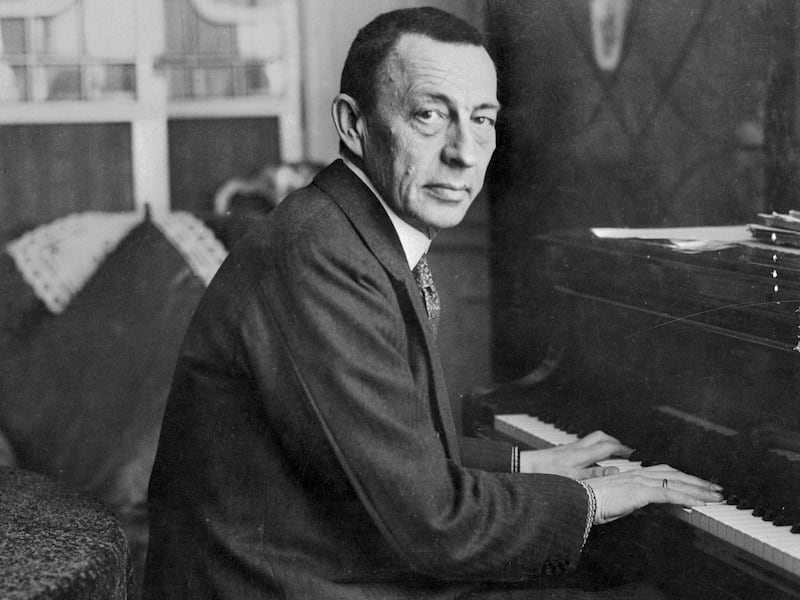The life of Russian composer Sergei Rachmaninoff has been celebrated by conductors and orchestras around the world this year, from New York's Carnegie Hall to Moscow's Bolshoi Theatre.
This weekend, it will be Abu Dhabi's turn to mark the 150th anniversary of Rachmaninoff's birth with two performances by the UK's Royal Philharmonic Orchestra at Emirates Palace. They will take place on Friday and Saturday.
Held as part of the Abu Dhabi Classics concert series and led by Russian-British conductor Vasily Petrenko, the programme will feature some works by Rachmaninoff, such as the popular Symphony No. 2 in E minor.
Speaking to The National, Petrenko explains why Rachmaninoff’s legacy endures.
He was a melody man
Melody was key for Rachmaninoff, says Petrenko, and it is best showcased in his moving second and third piano concertos.
They are laced with lush and lyrical melodic lines meant to stir the heartstrings.
Sweeping and introspective, the melodic themes are often repeated throughout to give the concerto a sense of unity.
"Melody is a very important part of his heritage," Petrenko says.
"What is less known, however, is that his orchestrations are influenced by his time on the road, whether that was in Germany or England.
“So what you are hearing really is an integration of all of the different inspirations he picked up from great music traditions and cultures.”
The piano was key to his work
Rachmaninoff was a champion of the piano.
An accomplished player himself, his pieces allowed him to showcase the full potential of the instrument through a combination of powerful technique and expressive playing.
If you listen closely, Petrenko adds, you could even hear the building blocks for some potential epic symphonies.
"Rachmaninoff’s works are interlinked," he says.
"I can hear an orchestra in them and he really justifies the famous saying that a piano is an orchestra in miniature.
“While at the same time, you can also hear in these symphonies the piano techniques that give these pieces their vivid colour and timbers.”
He composed music with soul
Rachmaninoff's key works are associated with the late Romantic period at the turn of the 20th century.
He was a bastion of the musical form in a time when classical music was evolving with the arrival of Claude Debussy and Maurice Ravel, French composers credited with ushering in the innovative and non-traditional sounds of impressionist classical music.
"Rachmaninoff believed that Romantic music always has something to say and he is right because you hear its elements in popular music and Hollywood scores," Petrenko says.
"But he was living in a period of history where the musical fashion of the time was changing. Rachmaninoff wasn't a total purist, however.
“He managed to enrich his composing technique in the latter stages of his life by adding modern elements like the saxophone in a piece like The Symphonic Dances while being very attentive to the Romantic tradition.”
More than being a staunch traditionalist, Rachmaninoff's stance stems from the belief that music should always elicit an emotional response.
"He was trying to stay away from this idea that he described as 'brainy music'," Petrenko says.
"He was concerned that future composers would create works purely defined by their technical elements. He always wanted music to come from the heart.”
Friday, 8pm; Saturday, 5pm; Emirates Palace, Abu Dhabi; ticketmaster.ae







